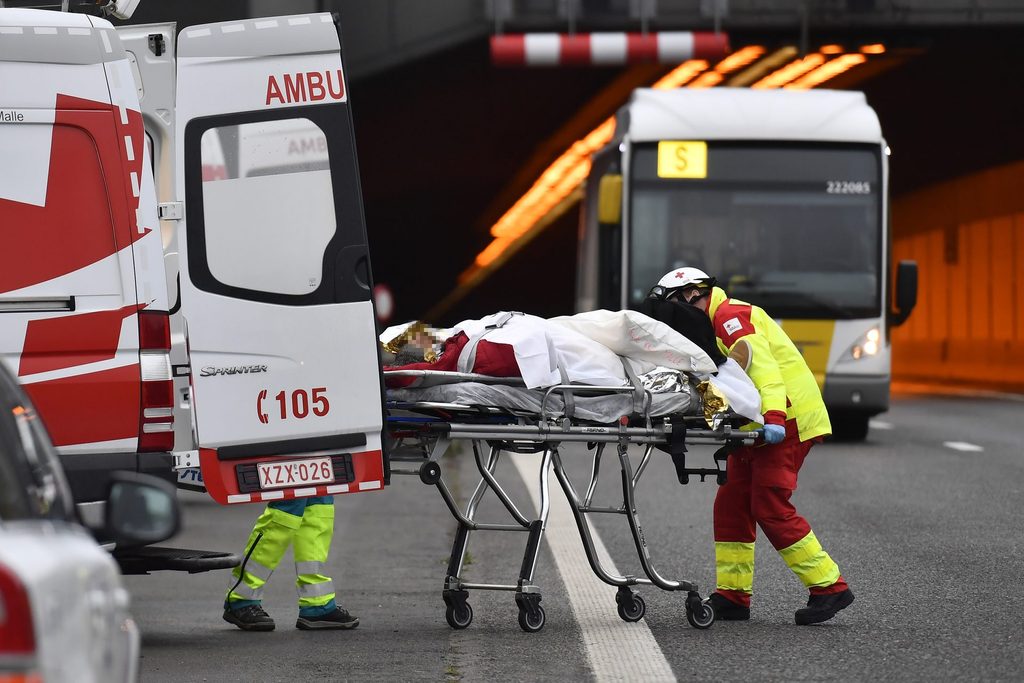Despite the government's promises to reduce the number of road deaths in Belgium, the figure is barely dropping, spurring Road Safety Institute Vias to present authorities with concrete measures that it believes must be taken.
No fewer than 540 road deaths were recorded in Belgium last year – the highest number of fatalities due to accidents in a decade. Vias also stressed that this figure remains much above the target of no more than 320 road deaths by 2030, which was set at the last General Assembly on Road Safety.
In some cases, for example for cyclists, the situation has even worsened in recent years. Last year was particularly bad, as it saw the highest number of fatalities in a decade. While this can be partly explained by the fact that the overall number of cyclists on Belgian roads has increased in recent years, the rise in accidents is still proportionally higher.
"Without additional measures, we will not reach that target," Vias noted in a statement. In the wake of next year's elections, the institute has prepared a memorandum with 12 concrete measures aiming to reduce the number of casualties on Belgian roads faster.
Many of them are concrete measures that have demonstrated their effectiveness elsewhere but have never been implemented in Belgium. "We observe that, in the field of road safety, there are many good intentions but only limited measures are taken," Karin Genoe, CEO of Vias, said.
What are the proposed measures?
Genoe explained that the memorandum is more about 'corrections' in the highway code than real measures, as these are more likely to save lives.
"Structural measures are failing to materialise. With this memorandum, we hope to draw the attention of politicians to the need to act quickly to still achieve the pre-defined goals."
One of the key measures Vias advocates is lowering the technical tolerance margin of speed measurements. Currently, that margin is 6km/h (up to maximum speeds of 100 km/h) and 6% above 100 km/h. In a 30km/h zone, Vias argues this margin is much too wide, while on motorways, drivers only get fined once they drive 129 km/h or more.
It suggests dropping the margin to 3 km/h, or 3% above 100 km/h, as has been done in the Netherlands and France. "Such a reduction could save about 30 lives and 2,500 injuries annually."
In eight EU Member States, zero tolerance for alcohol for all drivers is already in place, but not in Belgium, where Vias argues that drivers are too tolerant of alcohol behind the wheel. It called for the country to implement this measure, stressing this can be done "immediately and without additional costs."
Repeated traffic offences rarely lead to an appearance in court in Belgium, but Vias argued that this could be solved by a driving licence with points to identify and punish them more effectively. In Europe, 22 countries already have a points driving licence, but in Belgium, this recently led to a government clash.
As it has done repeatedly in the past, Vias once again called for smart cameras that can detect mobile phone use behind the wheel. It also wants a ban on warning systems for police mobile checks, for example on apps such as Waze.
In light of the skyrocketing number of injuries involving e-scooters, the institute also wants to make wearing a helmet compulsory at all times and make fluorescent vests mandatory at night.
It argued that the sale, possession and transport of nitrous oxide should also be banned everywhere, as has been done in the Netherlands and more recently in the UK. Many young people drive under the influence of this drug on a monthly basis.
Vias also called for the more frequent use of mobile section controls, especially around roadworks, as almost two in three drivers "forget" to slow down for this, making them areas of high accident risk.
It also underlined the importance of "legible, quality and conflict-free infrastructure" regarding how the road looks, how recognisable the layout is and the way it 'leads' road users to the desired behaviour.
Related News
- Rise in 'soft' mobility comes with clear rise in related accidents
- Road users involved in traffic accident must now undergo compulsory drug test
- Police announce new drive against distracted driving
Overall, Vias noted there should be more checks on drugs in traffic, as the phenomenon of (especially young) drivers who drive under the influence has risen.
Finally, it encourages rewarding road users who do obey traffic rules, for instance with a tombola ticket when they pass a negative alcohol test. "Then the message is clear: the sole purpose of road safety policy is to reduce accidents and casualties."
"If all policymakers work together and take responsibility, dozens of lives could be saved," Vias concluded.

